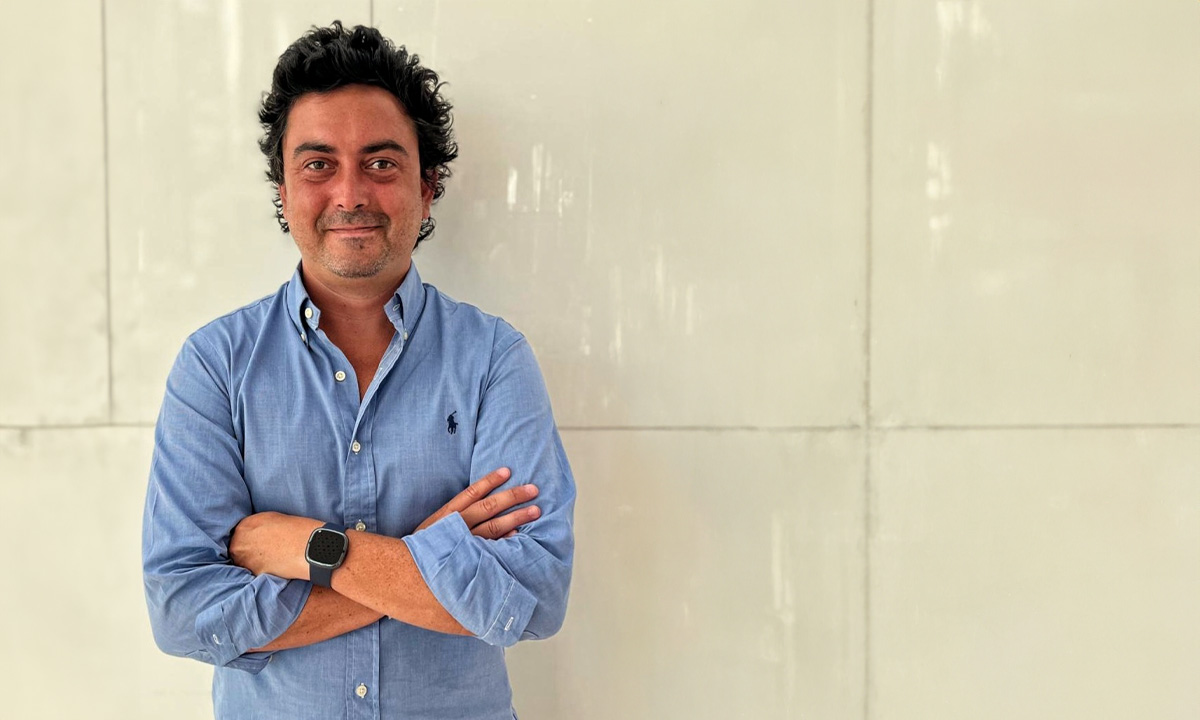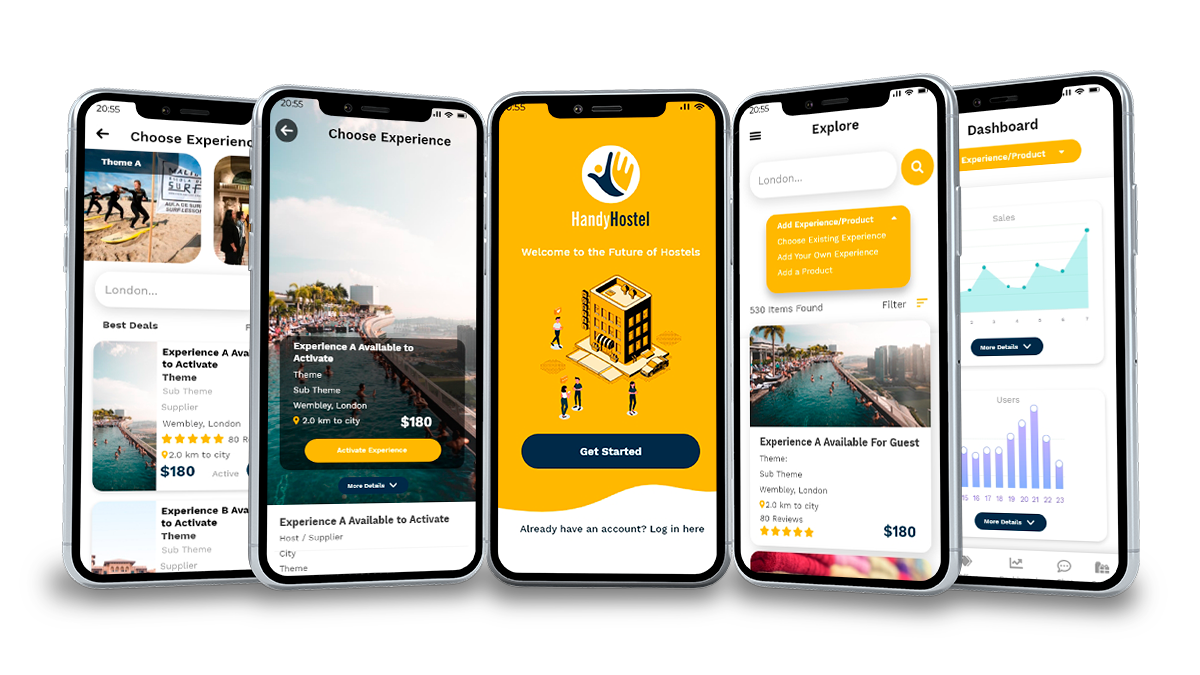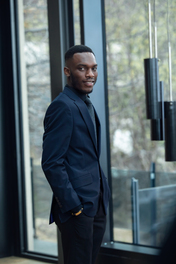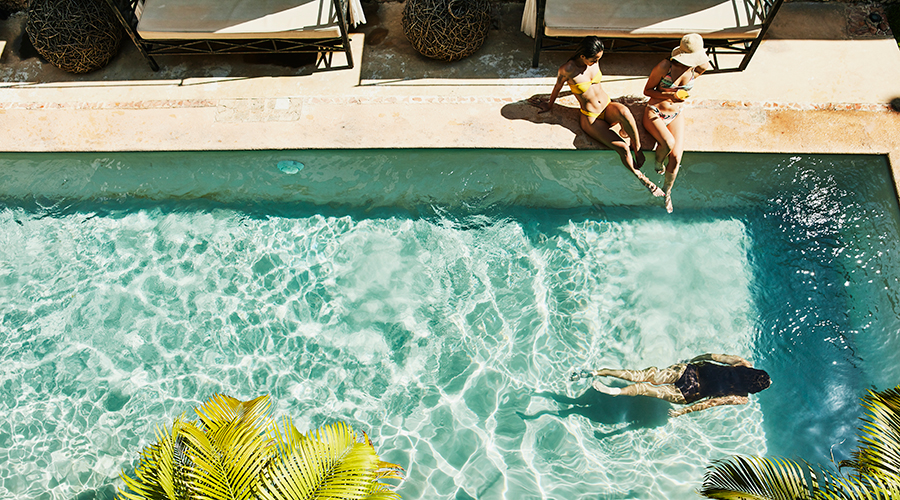Experience economy: tapping into the traveler end of the market
19th September, 2024

Hospitality is about so much more than the upper echelons of the industry, as alumnus João Nuno Reis – who has swapped luxury hotels for backpacker hostels – asserts.
“During my student days, I felt we were all focused on working for big luxury companies,” says BBA in International Hotel Management with Marketing graduate João Nuno Reis. “That was the path more than 90% of us were taking, but I remember former Program Manager and Senior Lecturer Dr Detlev Remy taught us hotel management is a lot more than that. It was something that opened my eyes to a whole new world and his words stayed with me ever since, because not many people talked about it back then.”
Having tasted the high life during his two internships and worked for Four Seasons and cruise companies following graduation, João Nuno decided he wanted to work in a different, less formal sector of the hospitality industry.
Now Sales Representative and Account Manager for HandyHostel, a Portuguese start-up that’s aiming to disrupt the hostel and lower-end hotel market, João took time out of his hectic schedule to talk to us about his career journey and how a formal hospitality education at a renowned institution set him on his current path.
Immersive internships
Like many of his classmates, João Nuno learned about luxury hospitality while at Les Roches and became fully immersed in the more exclusive end of the market while carrying out his second internship in Monaco.
“To live in Monaco for six months with lodging included was amazing,” he says. “It’s the kind of place where if you have a really nice Mercedes, you’re just a mere mortal. I had a great time there with my fellow Les Roches classmates. One of the restaurants I worked in, called Le Grill, had a roof that opened and gave diners a view of the marina, which was incredible. So it was great but also, for me, also quite surreal.”
During João’s first internship with Four Seasons in Milan, he was also introduced to the trappings of luxury hospitality.
“It was an important learning experience for me because it was the first time that I had direct contact with a corporate culture,” says João. “Four Seasons brainwashed me, but I mean that in a good way. All of us from Les Roches who worked at Four Seasons came back with its corporate culture deeply ingrained in us. They really emphasize and practice the famous Four Seasons golden rule that, if you treat people well, the way you would like to be treated, they will do the same.”
A seasoned professional
It was a mindset that stood João in good stead because he had already landed himself a job with Four Seasons in Lisbon on graduation.
“I started on the hotel’s Management Training Program,” he says. “It was quite formal training and I was there during the NATO Summit that was held in Lisbon, which was an experience. But I believed I was already fairly disciplined by nature because of my academic and professional background, so I wanted to go in another direction.”
That direction ended up being seaward as João took on a role with Celebrity Cruises, which enabled him to travel all over the world.
“It’s tough work, but I really loved the experience,” he says. “Especially the fact that I lost count of all the places I went to, some of which I never thought I would go to in my life.
“Like most seafarers, we were onboard for six months without any days off, so it was hard. But I stuck it out because it paid well and it prepared me for anything. After that experience, I felt invincible – and I still do. But I’d only recommend doing it when you’re young and you don’t have a family.”

Changing tack
When the pandemic hit, João Nuno’s career – like many others in the industry – was put on hold. He had already found a job with Viking River Cruises that he was unable to take up due to the Covid-19 crisis, but thankfully was able to join the company once the travel industry began to open up again.
“When Viking restarted their operations, I worked for them for a while, then as a front office manager in a hotel for a year in my home town of Funchal on the island of Madeira,” he says. “But as I mentioned earlier, I had ambitions in other areas and found the idea of working for a start-up genuinely appealing. And that meant another change of direction.
“It was a challenge, though, because unless you have a tech background, those types of jobs aren’t that easy to find. But I did my research and came across HandyHostel, which had just won the ‘Best Startup’ prize at the Portugal Trade Awards in Lisbon. So I contacted the owner through LinkedIn and here I am.”
Hostel hosting platform
HandyHostel is a digital platform designed for hostels and while its splinter project HandyStay is for low end accommodation types. It allows these hospitality venues to promote their services and activities, recommend experiences in their cities, suggest favorite spots to visit, send notifications to guests and even introduce their team members. On top of that, these properties can earn commission from the partners they already have as well as from the ones HandyHostel can add.
“Through HandyHostel, venues get their own dedicated landing page where they can display all the information they want to guests,” says João. “That includes everything from their check-in and check-out times and any curfews to dates of their next beer pong or pizza night events. And because it allows venues to send notifications, we’ve also seen it used to prevent complaints by warning guests about things like hot water being switched off for repairs.”
So how does João feel about swapping high-end hotels and a life on the ocean wave for the hustle and bustle of the hostel world?
“I love it,” he says. “I enjoy the challenge of being part of a newborn company that’s growing and looking to the future. It allows me to share my experience and my creativity, we have a great team and I think we all complement each other. For example, I don’t know much about sales, so I rely a lot on my sales colleagues. But I do know about hospitality, so I understand how hostel owners and hotel managers think and can help them with ideas and suggestions.
“So far, it’s been fun. It’s still challenging, because we want to grow and we’re always looking for different angles. But that’s something that also brings out the creativity in you too.”
For more information, visit the HandyHostel website or contact HandyHostel via email: info@handyhostel.com.
Our degree course is designed to prepare you to excel in the world of hotels, whether it’s a top brand or your own.



